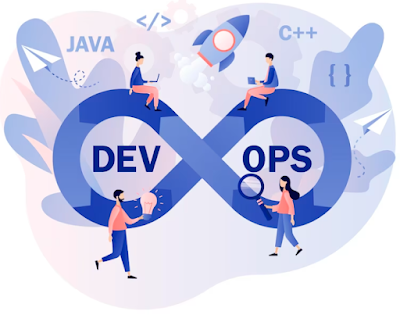In the realm of DevOps, the pursuit of continuous improvement
reigns supreme. It's a journey marked by precision and progress, where metrics
and goals serve as guiding stars. By understanding the significance of what we
measure and fostering collaboration through social metrics, we unlock a
transformative approach to enhancing our processes and outcomes. In this
exploration, we delve into the core principles of DevOps, emphasizing the
importance of setting baselines, defining clear goals, and rethinking
availability. We also examine how measuring and rewarding what truly matters
paves the path to success. Let's embark on this journey of DevOps evolution,
driven by the philosophy of measuring, improving, and thriving.
Let's discover the significance of measuring what you aim to
enhance, recognize the value of social and DevOps metrics, and understand how
DevOps influences your approach to problem-solving.
The Power of Metrics and Goals
When we know the importance of measuring for improvement we will be able to exercise power of metrics and goals. Following points together form a comprehensive exploration of the multifaceted world of measurement and its profound implications.
The Wisdom of Measuring What Matters
Drawing inspiration from Steven Kerr's 1975 paper, "The Folly of Rewarding for A, While Hoping for B," it is universally acknowledged that organisms, whether monkeys, rats, or humans, actively seek to understand what actions are rewarded and often prioritize those actions over unrewarded ones.
The
Perils of Measuring A and Hoping for B
It is futile to measure one thing and expect another. The outcomes you seek are directly influenced by what you measure. Thus, it is essential to measure what genuinely matters
The Pitfalls of Measuring Quantity over Quality
Historically, focusing on quantity, such as widget production or lines of code, has led to unintended consequences. When measured by volume alone, individuals may prioritize quantity at the expense of quality. This leads to an overemphasis on output without considering its quality.
The Fallacy of Ranking and Its Consequences
Many organizations employ ranking systems that promote competition among employees. This approach may inadvertently encourage antisocial behavior as colleagues compete against each other for recognition, pay raises, or promotions.
Fostering Social Collaboration
In the pursuit of fostering a collaborative and sociable work environment among developers, measuring their social interactions, willingness to share code and knowledge, and their contributions to collective success becomes paramount.
Measuring for Social Collaboration
To foster a social and collaborative environment, it is imperative to measure developers based on their social interactions, willingness to share code and knowledge, and contributions to the collective success.
Metrics for Social Coding
Two key metrics for promoting social coding are introduced. The first metric assesses who leverages the code created, encouraging individuals to produce code that others find valuable. The second metric evaluates whose code is being leveraged, motivating developers to avoid redundant work and reuse existing solutions.
Incentivizing Collaboration through Measurement
These metrics, when used in tandem, incentivize both code sharing and code reuse, ultimately promoting social behavior among developers. In conclusion, to achieve social behavior, it is imperative to introduce social metrics that encourage cooperation and knowledge sharing.
Continuous Improvement with DevOps
This section explores the fundamental principles of DevOps,
emphasizing the significance of continuous improvement. It begins by
establishing a baseline to understand the current state, followed by setting
precise metric-driven goals. The approach centers on incremental progress,
focusing on one goal at a time for a more streamlined and effective improvement
journey.
DevOps centers on the principle of ongoing enhancement. To gauge your progress effectively, it's vital to have a clear starting point. This journey begins with establishing a baseline to identify what requires improvement.
Setting the BaselineThe baseline entails understanding your current state. For instance, it might take six team members 10 hours to deploy a product release, or each release may incur a specific cost. These measurements serve as your starting point or baseline.
Establishing Clear GoalsTo guide your journey toward improvement, it is crucial to set precise metric-based goals. Whether it's reducing deployment time, streamlining the number of team members involved, or decreasing defects in production, your goals provide direction for measuring success.
The Power of Metric-Driven GoalsMetric-driven goals enable you to measure and assess your progress, allowing for more informed decision-making. For example, if you aim to reduce deployment time from 10 hours to 2 hours, your baseline of 10 hours sets a clear target for a substantial fivefold improvement.
Incremental Progress with Focused GoalsRedefining Availability and Recovery
In this section, a paradigm shift in availability and recovery is
discussed. Highlights the transition from preventing failures to rapid
recovery.
DevOps shifts the paradigm of availability management. Instead of striving to prevent failures, the new approach centers around efficient failure recovery. This transition from "mean time to failure" to "mean time to recovery" acknowledges that systems may experience downtime, but the focus is on swift recovery to minimize disruption.
Agile Recovery in a Containerized WorldIn a containerized environment with microservices, you can recover swiftly by launching a new container when needed. The absence of a single point of failure ensures that even if containers go up and down, the customer's experience remains uninterrupted.
Measuring and Rewarding For Progress
In this section, the focus shifts to measuring and rewarding the right behaviors. Emphasizes aligning rewards with desired outcomes.
Measuring and Rewarding What Matters
DevOps emphasizes the significance of measuring and incentivizing behaviors that align with your improvement goals. Measuring social metrics promotes enhanced collaboration, while DevOps metrics enable you to track your progress toward defined objectives.
The Evolution of Problem ResolutionDevOps transforms the approach to problem resolution from a focus on failure prevention to an emphasis on quick and efficient failure recovery. This shift enables organizations to respond to challenges more effectively and minimize the impact of disruptions.
Conclusion
As we conclude our exploration of DevOps and the transformative
power of measurement, it becomes evident that the journey of continuous
improvement is fueled by precision and guided by the pursuit of meaningful
goals. In the ever-evolving landscape of technology and collaboration, the
wisdom of measuring what matters remains paramount. By shifting our focus from
the mere prevention of failures to rapid recovery and by fostering social
collaboration through effective measurement, DevOps ushers in a new era of
problem resolution. With a steadfast commitment to our goals and a dedication
to measuring and rewarding what truly counts, we stand poised to thrive in this
dynamic and ever-changing world of software development. This is the essence of
DevOps: measuring, improving, and thriving in the pursuit of excellence.




